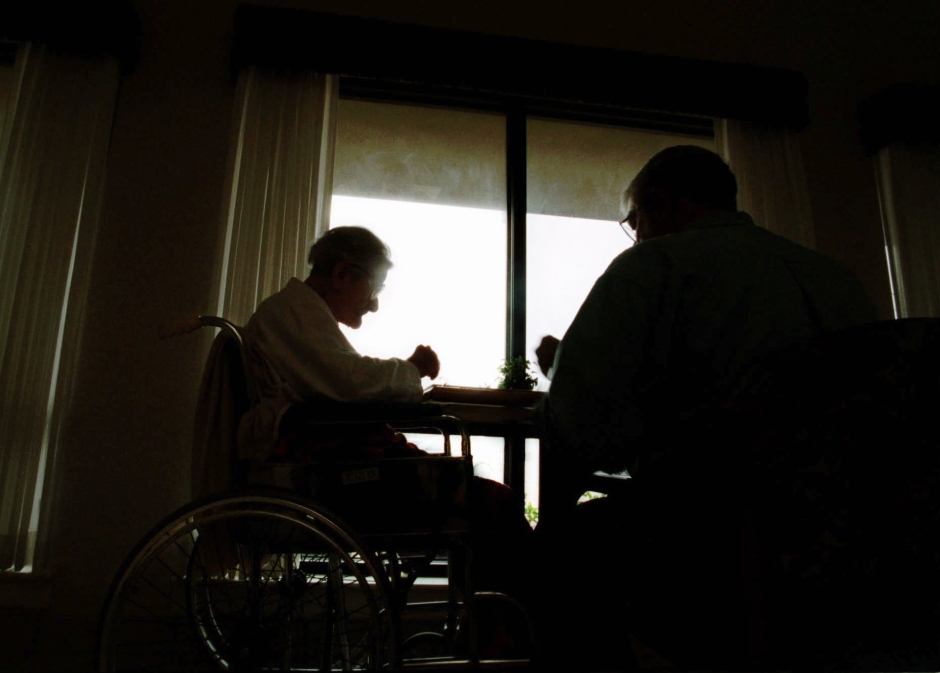They don’t mean to lash out. Often, they’ve never been physically violent before.

But dementia can change a quiet, calm person into someone who is not only confused and forgetful, but who is physically aggressive.
It happens all the time in nursing homes right across this country.
READ MORE: Support needed in nursing homes dealing with aggressive dementia residents
My dad was slugged by another resident at a care home.
Dad has macular degeneration and dementia. He mistakenly went into someone else’s room.
He had some teeth knocked out and was badly bruised.
I felt terrible for Dad, but it was pointless to be angry about what happened because I know it’s impossible for the limited number of staff to do one-on-one care with each resident and keep an eye on every single move they make.
Most people think memory loss is the biggest issue to deal with, but sometimes that’s the least of the problems.
It’s frustrating to try to predict when aggression might happen.
Sometimes it’s triggered by over-stimulation — loud noises, a chaotic environment or a break in the usual routine.
It could also be triggered by physical discomfort or pain that the person is unable to articulate or identify.
- Buzz kill? Gen Z less interested in coffee than older Canadians, survey shows
- ‘She gets to be 10’: Ontario child’s heart donated to girl the same age
- Bird flu risk to humans an ‘enormous concern,’ WHO says. Here’s what to know
- Canada updating sperm donor screening criteria for men who have sex with men
Urinary tract infections — which are very common in the elderly -– can cause delirium and strange out-of-character behavior.
My mother had a UTI last year that landed her in the hospital and by that point she was yelling, hitting and complaining there were bugs crawling on her.
It was completely out of character and once the antibiotics kicked in she returned to her usual self.
Or, at least as usual as someone with dementia can ever be.
READ MORE: Alzheimer’s most costly malady in US topping cancer, heart disease: study
There is no question caring for someone with dementia is complicated and frustrating.
It requires an endless amount of patience and it is desperately sad to watch the parent who raised you and cared for you descend into a place where no one can reach them.
We as a society have not come to grips with this and are not doing nearly enough to plan for what’s coming.
As the boomer generation ages and medical treatment extends life spans, we’ll need more staff, better training and separate units for residents with dementia.
That will cost a bundle, but it’s something we should all be talking about.
Dawna Friesen is the anchor and executive editor of Global National



Comments